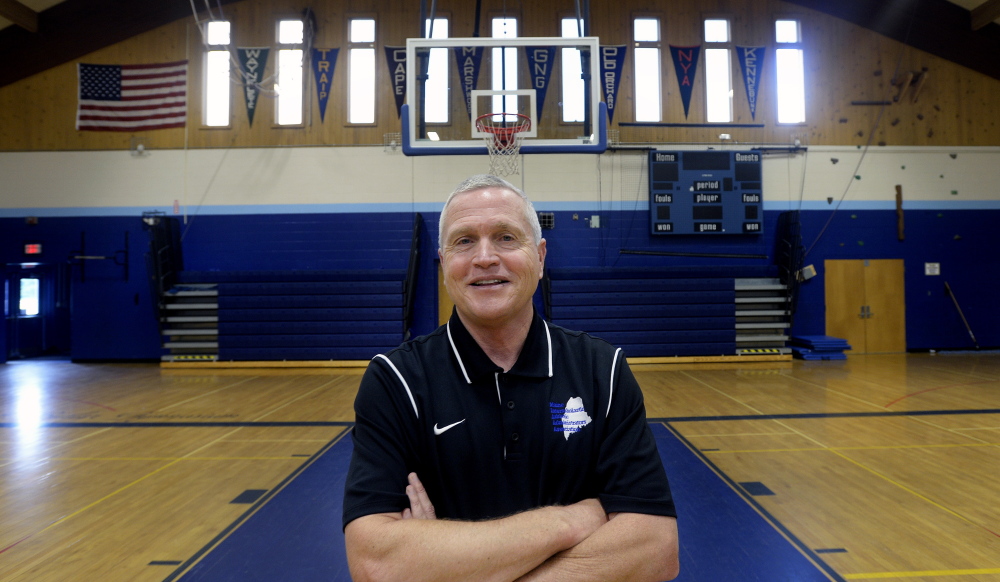YORK — Ted Welch arrived at York High in 1975, a recent University of Maine graduate hoping to land a job as football coach.
Principal Bob Stevens wasn’t impressed. In their first meeting, Stevens told the 22-year-old that he didn’t have enough experience. But Welch convinced him otherwise.
He got the coaching position and a job as physical education teacher at the middle school.
And he stuck around for a while.
A successful football coach who led the Wildcats to the 1980 Class C championship, Welch retired in June as one of the most respected athletic directors in the state.
“I was incredibly blessed,” he said. “It’s really been a pleasure.”
National and state associations turned to Welch to help mentor younger athletic directors.
“Ted was one of the guys I looked to for advice when I first started,” said Rich Buzzell, the AD at nearby Marshwood High in South Berwick. “Ted’s demeanor was something I envied. No matter what the situation was, Ted was the one that kept his head and his calm. He had a cool, collected approach, and you have to have that in this profession.”
The day before he left his office for the final time, Welch was back at the middle school, trumpeting the virtues of an athletic program that regularly posts winning records. “I’ve come full circle,” he said.
It’s actually more than that.
Welch said he simply tried to look for the good in the situation or person. He had issues to deal with: parents unhappy with coaches, students violating school rules, budgets constantly strained by funding cuts.
“I think the most important thing is to be who you are,” said Welch, a native of Hingham, Massachusetts. “Just be straight up with people. Let people know where they stand and let them know where you stand, too.”
He said he was ready to retire but leaving was still bittersweet. He loved being part of a school system that supported athletics and what he tried to accomplish.
“We’ve had our challenges,” he said. “One of the things we always said here at York was that we learned to do more with less.
“The growth of our programs are not reflected in our budgets. But it was still the expectation that we have a first-class program.”
And he, like many former colleagues, said he could not have done this without the support of his family, especially his wife, Kathy.
She understood the hours he had to put in to make sure everything was done.
“It’s long days, nights and weekends,” said Welch. “I will miss it. But I’ll tell you what I won’t miss – those phone calls saying, ‘The bus isn’t here.’ ”
Send questions/comments to the editors.




Success. Please wait for the page to reload. If the page does not reload within 5 seconds, please refresh the page.
Enter your email and password to access comments.
Hi, to comment on stories you must . This profile is in addition to your subscription and website login.
Already have a commenting profile? .
Invalid username/password.
Please check your email to confirm and complete your registration.
Only subscribers are eligible to post comments. Please subscribe or login first for digital access. Here’s why.
Use the form below to reset your password. When you've submitted your account email, we will send an email with a reset code.